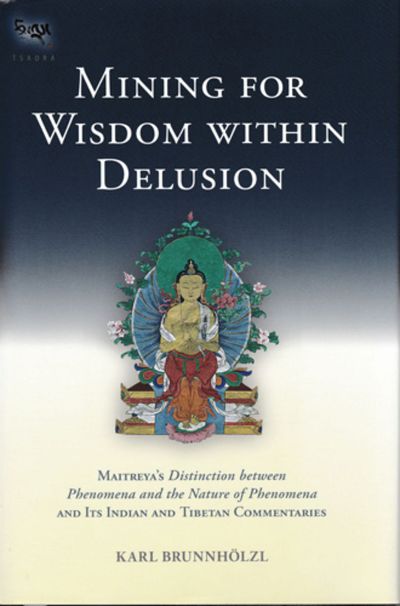No edit summary |
No edit summary |
||
| Line 45: | Line 45: | ||
****** {{i|Instruction on the distinctive features of the fundamental<br> change |255}} | ****** {{i|Instruction on the distinctive features of the fundamental<br> change |255}} | ||
****** {{i|Explanation of comprehending the distinctive features of the<br> prerequisites |256}} | ****** {{i|Explanation of comprehending the distinctive features of the<br> prerequisites |256}} | ||
****** {{i|Instruction on the foundation of all this, based on which the fundamental change takes place |257}} | ****** {{i|Instruction on the foundation of all this, based on which the<br> fundamental change takes place |257}} | ||
****** {{i|Explanation of the mental engagement |274}} | ****** {{i|Explanation of the mental engagement |274}} | ||
****** {{i|Comprehending the training |280}} | ****** {{i|Comprehending the training |280}} | ||
Revision as of 18:35, 11 September 2020
Maitreya’s Distinction between Phenomena and the Nature of Phenomena distinguishes the illusory phenomenal world of saṃsāra produced by the confused dualistic mind from the ultimate reality that is mind’s true nature. The transition from the one to the other is the process of “mining for wisdom within delusion.” Maitreya’s text calls this “the fundamental change,” which refers to the vanishing of delusive appearances through practicing the path, thus revealing the underlying changeless nature of these appearances. In this context, the main part of the text consists of the most detailed explanation of nonconceptual wisdom—the primary driving force of the path as well as its ultimate result—in Buddhist literature.
The introduction of the book discusses these two topics (fundamental change and nonconceptual wisdom) at length and shows how they are treated in a number of other Buddhist scriptures. The three translated commentaries, by Vasubandhu, the Third Karmapa, Rangjung Dorje, and Gö Lotsāwa, as well as excerpts from all other available commentaries on Maitreya’s text, put it in the larger context of the Indian Yogācāra School and further clarify its main themes. They also show how this text is not a mere scholarly document, but an essential foundation for practicing both the sūtrayāna and the vajrayāna and thus making what it describes a living experience. The book also discusses the remaining four of the five works of Maitreya, their transmission from India to Tibet, and various views about them in the Tibetan tradition. (Source: Shambhala Publications)
| Citation | Brunnhölzl, Karl, trans. Mining for Wisdom within Delusion: Maitreya's Distinction between Phenomena and the Nature of Phenomena and Its Indian and Tibetan Commentaries. Tsadra Foundation Series. Boston: Snow Lion Publications, 2012. |
|---|---|


